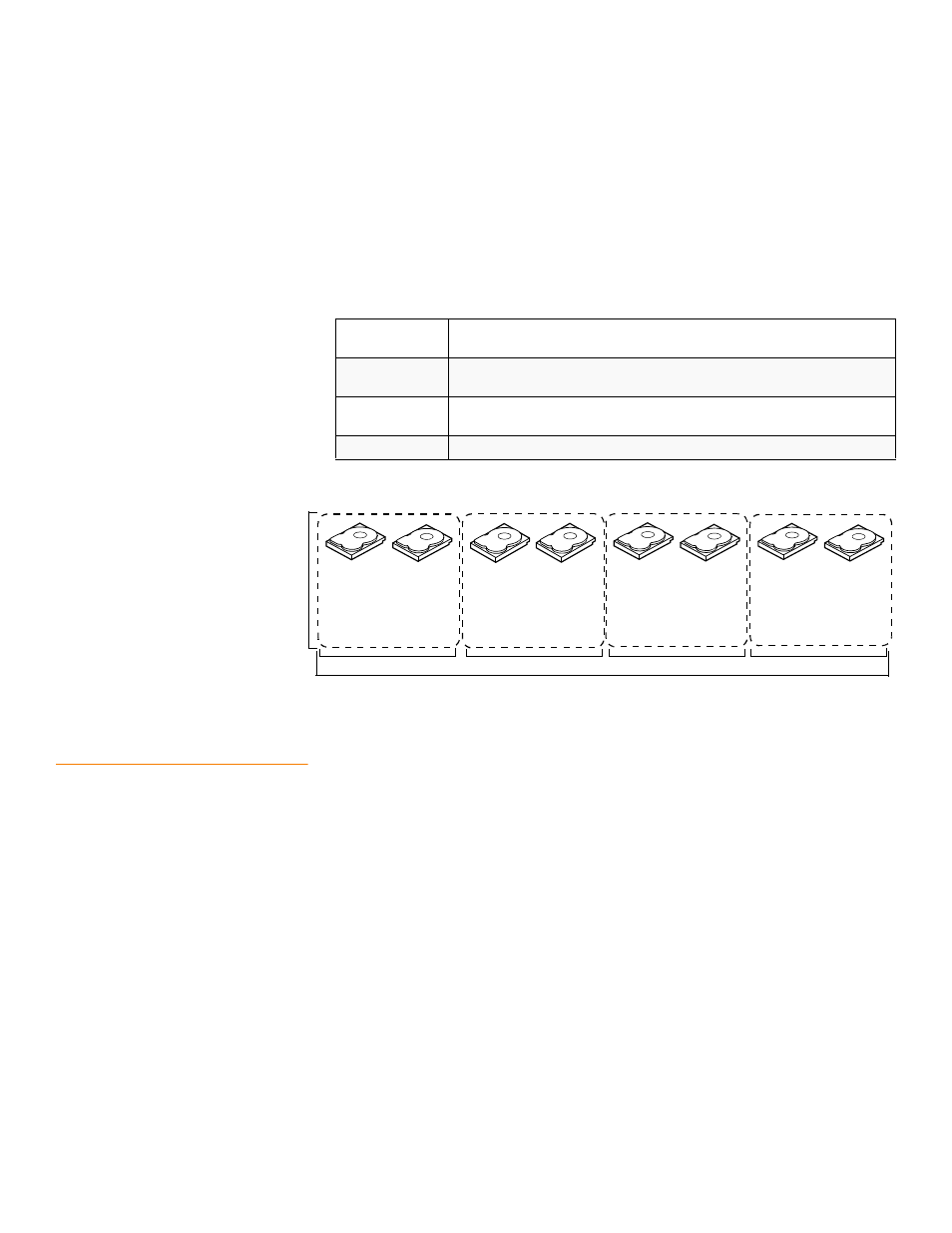8 raid 10 – Avago Technologies MegaRAID Fast Path Software User Manual
Page 37

LSI Corporation Confidential
|
July 2011
Page 37
MegaRAID SAS Software User Guide
Chapter 2: Introduction to RAID
|
RAID Levels
By breaking up a large file into smaller segments, the RAID controller can use both SAS
drives and SATA drives to read or write the file faster. RAID 00 involves no parity
calculations to complicate the write operation. This situation makes RAID 00 ideal for
applications that require high bandwidth but do not require fault tolerance.
provides an overview of RAID 00.
provides a graphic example of a RAID 00
drive group.
Figure 11:
RAID 00 Drive Group Example with Two Drives
2.5.8
RAID
10
RAID 10 is a combination of RAID 0 and RAID 1, and it consists of stripes across mirrored
drives. RAID 10 breaks up data into smaller blocks and then mirrors the blocks of data
to each RAID 1 drive group. The first RAID 1 drive in each drive group then duplicates its
data to the second drive. The size of each block is determined by the stripe size
parameter, which is set during the creation of the RAID set. The RAID 1 virtual drives
must have the same stripe size.
Spanning is used because one virtual drive is defined across more than one drive
group. Virtual drives defined across multiple RAID 1 level drive groups are referred to as
RAID level 10, (1+0). Data is striped across drive groups to increase performance by
enabling access to multiple drive groups simultaneously.
Each spanned RAID 10 virtual drive can tolerate multiple drive failures, as long as each
failure is in a separate drive group. If drive failures occur, less than total drive capacity is
available.
Configure RAID 10 by spanning two contiguous RAID 1 virtual drives, up to the
maximum number of supported devices for the controller. RAID 10 supports a
maximum of 8 spans, with a maximum of 32 drives per span. You must use an even
number of drives in each RAID 10 virtual drive in the span.
Table 11: RAID 00 Overview
Uses
Provides high data throughput, especially for large files. Any environment
that does not require fault tolerance.
Strong points
Provides increased data throughput for large files.
No capacity loss penalty for parity.
Weak points
Does not provide fault tolerance or high bandwidth.
All data lost if any drive fails.
Drives
2 through 256
Segment 1
Segment
2
Segment
3
Segment
6
Segment
8
Segment
5
Segment
7
Segment
9
Segment
11
Segment
13
Segment
15
Segment
10
Segment
12
Segment
14
Segment
16
Segment
4
...
...
...
...
RAID
0
RAID
0
RAID
0
RAID
0
RAID 00
RAID 0
Segment
17
Segment
18
Segment
19
Segment
20
Segment
21
Segment
22
Segment
23
Segment
24
- MegaRAID SAS 9240-4i MegaRAID SAS 9240-8i MegaRAID SAS 9260-16i MegaRAID SAS 9260-4i MegaRAID SAS 9260-8i MegaRAID SAS 9261-8i MegaRAID SAS 9280-16i4e MegaRAID SAS 9280-4i4e MegaRAID SAS 9280-8e MegaRAID SafeStore Software MegaRAID SAS 9361-4i MegaRAID SAS 9361-8i MegaRAID SAS 9266-4i MegaRAID SAS 9266-8i MegaRAID SAS 9270-8i MegaRAID SAS 9271-4i MegaRAID SAS 9271-8i MegaRAID SAS 9271-8iCC MegaRAID SAS 9286-8e MegaRAID SAS 9286CV-8e MegaRAID SAS 9286CV-8eCC MegaRAID CacheCade Pro 2.0 Software MegaRAID SAS 9341-4i MegaRAID SAS 9341-8i MegaRAID SAS 9380-8e MegaRAID SAS 9380-4i4e
